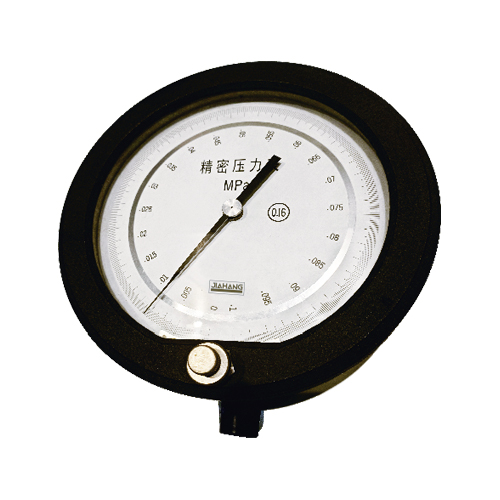
Dec . 06, 2024 10:32 Back to list
Understanding Quotes for Differential Pressure Gauges in Various Applications
Understanding Differential Pressure Gauges An Essential Tool in Industry
Differential pressure gauges are vital instruments used across various industries to measure the difference in pressure between two points in a system. These gauges play a crucial role in ensuring the efficiency, safety, and reliability of processes, ranging from HVAC systems to chemical manufacturing. With the growing need for precise monitoring, understanding the significance and applications of differential pressure gauges is essential for professionals in technical fields.
What is a Differential Pressure Gauge?
A differential pressure gauge is designed to measure the difference in pressure between two locations. The pressure measurement typically involves either a fluid (liquid or gas) and is expressed in units such as psi (pounds per square inch) or Pa (Pascals). Unlike absolute pressure gauges, which measure pressure relative to a complete vacuum, differential gauges compare the pressure at two distinct points, providing valuable insight into system performance.
Types of Differential Pressure Gauges
Several types of differential pressure gauges are available in the market, each catering to specific applications and industries. The most common types include
1. Bourdon Tube Gauges These mechanical devices utilize a coiled metal tube that straightens when pressure is applied. They are sturdy and suitable for a wide range of applications, including HVAC systems and water treatment.
2. Capacitive Gauges These use capacitance changes within a diaphragm to measure pressure differentials. They are highly sensitive and ideal for cleanroom environments in the pharmaceutical and semiconductor industries.
3. Electronic Differential Pressure Sensors These use electronic components to provide digital readings and can often connect to data loggers and control systems for real-time monitoring and automation.
Applications of Differential Pressure Gauges
Differential pressure gauges are utilized in various applications, including
- HVAC Systems In heating, ventilation, and air conditioning systems, these gauges monitor filters, ducts, and fan pressures to ensure optimal airflow and energy efficiency.
- Process Industries They are crucial in chemical processes where monitoring the pressure drop across filters, heat exchangers, or reactors ensures product quality and process efficiency
.differential presure gauge quotes

- Cleanroom Environments In pharmaceutical and semiconductor manufacturing, differential pressure gauges maintain and monitor pressure differentials to prevent contamination and ensure compliance with safety standards.
- Water and Wastewater Management These gauges measure levels and flows in tanks and treatment facilities, ensuring the effective management of resources.
The Importance of Accurate Measurements
Accurate differential pressure measurements are vital for safety and efficiency in any system. Incorrect readings can lead to equipment failure, product loss, or even hazardous situations. For instance, in cleanroom applications, maintaining the right pressure differential protects sensitive processes from airborne contaminants. In industrial processes, accurate measurements help in optimizing operations, saving energy, reducing costs, and extending the lifespan of equipment.
Selection Criteria for Differential Pressure Gauges
Choosing the right differential pressure gauge involves considering several factors
1. Range The pressure range must align with the specific application needs.
2. Medium The type of fluid (liquid or gas) being measured determines the suitability of the gauge material and design.
3. Accuracy Depending on the stated requirements, selecting a gauge with the appropriate degree of accuracy is vital for maintaining process integrity.
4. Environmental Conditions Certain gauges are designed to withstand extreme temperatures, humidity, or corrosive environments. It's essential to select a gauge appropriate for the conditions of use.
5. Calibration and Maintenance Regular calibration ensures the reliability of readings. Consider how easy it is to maintain the gauge based on your operational requirements.
Conclusion
Differential pressure gauges are critical tools in many industries, ensuring systems operate safely and efficiently. By providing crucial data on pressure differences, they help maintain control over processes and equipment. As industries continue to evolve and require more sophisticated monitoring solutions, the significance of differential pressure measurement will only continue to grow. Professionals must be well-informed about the types, applications, and selection criteria of these gauges to maximize their benefits and ensure optimal performance. Investing in quality differential pressure gauges is an investment in operational efficiency and safety.
-
High-Quality Pressure Gauge on Fire Extinguisher - Reliable Water Fire Extinguisher Pressure Gauge Suppliers & Exporters
NewsJul.08,2025
-
High-Quality Water Pressure Differential and Gauge Kit Reliable Manufacturers & Competitive Quotes
NewsJul.08,2025
-
High-Precision Digital Diaphragm Pressure Gauge – Reliable Manufacturer & Competitive Quotes
NewsJul.07,2025
-
Wholesale Diaphragm Pressure Gauge Supplier - Premium Quality & Competitive Price
NewsJul.07,2025
-
Digital Diaphragm Pressure Gauge Reliable & Precise Measurement Top Manufacturers Quotes
NewsJul.06,2025
-
High Accuracy Piston Type Differential Pressure Gauge - Reliable Manufacturers & Competitive Quotes
NewsJul.06,2025
